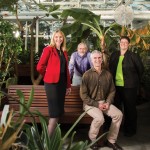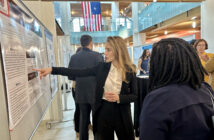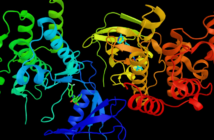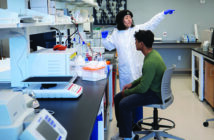Smith hopes their more generalized, global look at hundreds of outbreaks, mapped, over time, against environmental change, will reveal trends in disease distribution, spread, and severity, and make possible forecasts about epidemic risks as well as prevention and timely response.
Their data also allow them to test current conventional wisdom. Research correlates increasing temperature and precipitation with the spread of malaria and dengue fever, for example. But it doesn’t follow that all such diseases will expand significantly north and south of the equator, Smith says. “As diseases move poleward out of tropics, they bump up against wealthy nations,” she says. “It’s a giant public health wall, once [a disease like malaria]hits a nation where they can prevent it and control it and treat it.”
An alternative hypothesis, Smith says, is that drought around the equator due to rising temperatures will shift, rather than grow, the ranges of tropical disease hosts or vectors that thrive in wet conditions. Or maybe, she adds, some diseases will decline completely and disappear. “What if climate warming reduces disease x?” she says. “We may find, in some cases, that the answers aren’t what people expect.”
But environmental change, left unchecked, creates known unknowns. Even the most elaborate dataset and sophisticated modeling can’t predict a novel pathogen for which we have no immunity or treatment. “We regularly see spillover events, like simian foamy virus,” a retrovirus in central Africa closely related to HIV that can jump from apes and monkeys to humans, Smith says. Logging, urbanization, rising temperatures, and shifting weather patterns have the potential to facilitate a global epidemic, an ecological, public health, and even global security concern.
The infectious disease database is a treasure trove, an unprecedented opportunity to address some of disease biogeography’s most current, and vexing, controversies. And like all dedicated treasure hunters, the team is eager to dig until they hit gold. “It’s really exciting to have these questions,” Ramachandran says. It will be even more exciting to have the answers.
-
 Under One Roof
Under One Roof
An interdisciplinary team is taking a collaborative approach to defining the link between global epidemics and climate change. Read more…




